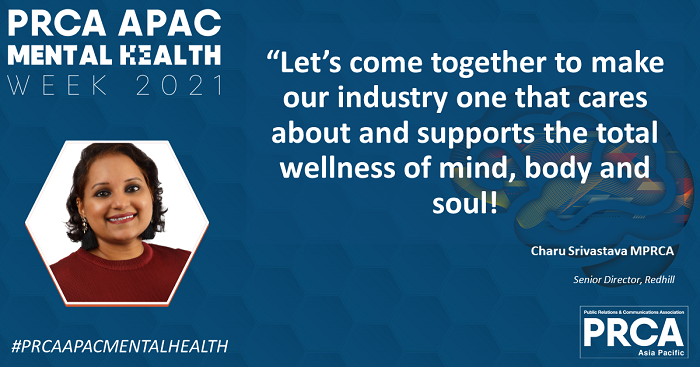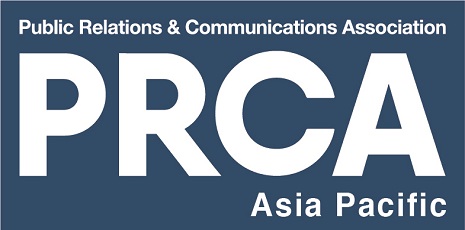
Mental health has been discussed a lot over the past year due to the COVID-19 pandemic, travel lockdowns and other pandemic restrictions. I participated in many mental health panels and initiatives to raise awareness about the importance of maintaining good mental health, especially at work.
Yet, I fell prey to the very pressures of work that I spoke about and warned against. Without even realising it, the pandemic and the complete halt to travel exacerbated some longstanding mental stresses of mine and it all came to a head over the last year. The silver lining, however, is that I was able to take a step back, figure out what went wrong, and come back stronger than ever.
Always-On
How did I end up here? To answer that question, we need to talk about the big picture.
Agency life is not easy with the constant multitasking, meeting client demands, juggling conflicting deadlines, doing new business drives, managing people…the list continues. It’s a high-pressure job and when you’re in constant hustle mode, mental health doesn’t always factor high on your list of priorities. We’re subconsciously conditioned to believe that burnout is a sign of success because we’ve ‘given it our all’ and that rest is for the weak.
Previously, travelling and holidays were the carrots that fuelled my perpetual hard work on all fronts. This meant that I worked myself to the brink of burnout and “rewarded” myself with a holiday to take a full break from work and mentally “switch off”. Going away for a little while was rejuvenating, but then I would return to reality and the cycle would start all over again.
I took my last holiday in November 2019, when I was in between jobs. In fact, I deliberately negotiated a longer break to be able to travel and rejuvenate myself. My next trip was booked for March 2020 to India. As it turns out, that would be the day India shut her borders because of COVID-19. That trip never materialised.
So, I worked and saved up my leave days, waiting for the moment when travel would start up again. I never once considered that I could just take leave to unwind at home instead of going somewhere overseas. It was a foreign concept. Unheard of.
By June 2021, I was struggling. Not only had I had zero breaks, I was also juggling a lot more work – especially as a consequence of adapting to remote working. Conversations with my friends in the industry soon made it apparent that I wasn’t alone in this behaviour. It was simply how we were and are wired. Fortunately, the scale of mental health issues that we faced forced the industry to have some honest conversations and take action.
Communicate, Respect & Trust
The very first step to addressing any mental issues is to identify and acknowledge it. Sounds common sensical, but many times we fall foul of failing to communicate honestly with ourselves.
Admitting we have issues feels like a weakness or a failure, and no one likes to admit failure, so we try to internally justify and/or brush off our problems and concerns. But how can anyone help us when we won’t even listen to ourselves? It’s also important for us to communicate with people who we can trust and who can support us when we’re struggling with mental health. This includes our managers at work, friends and family, and healthcare professionals.
Conversely, if someone opens up to us in this manner, it’s just as crucial to listen to and empathise with them. This is especially important in a professional environment as staff members may feel vulnerable to judgement in regard to mental health issues. Companies should have safe, trusted avenues and platforms for employees to flag mental health concerns without fear of repercussion. Policies designed to address and mitigate mental health issues need to be the norm rather than the exception.
These things might seem daunting, but they don’t have to be. Simple efforts can make a difference. Having the ability to take mental health days, doing regular honest check-ins with team members, having work buddies and mentorship programmes, using anonymised feedback systems, sharing words and acts of encouragement and appreciation, and having designated No Meeting Days are just some examples. Reciprocal trust is vital for a healthier work environment; managers must trust their teams to reach out to them, and teams must trust that their managers will support them.
Breathe
Mental health isn’t just limited to or linked to work. However, we spend so much time working that having a healthy work environment can make or break our mental (and physical) wellness. It is so important to remember that a person can’t sustain running at 200% (or even 100%) all the time. Just like we take time off to recover from physical ailments, we need to take breaks to recover from mental ailments.
This is even more so when working in the seemingly always-on environment of agencies. As an industry, we need to normalise and destigmatise managing mental health and wellness. By communicating openly, as well as respecting and trusting ourselves and each other, we can enable open discussions around mental health – whether it involves addressing it before serious issues develop or to support friends, family and peers if and when they reach out for help.
A popular saying goes, “You can’t pour from an empty cup. Take care of yourself first.” Our minds and bodies need time to reset regularly and we – myself included – need to accept this and not wait for a burnout or a pandemic to act. Let’s come together to make our industry one that cares about and supports the total wellness of mind, body and soul!

